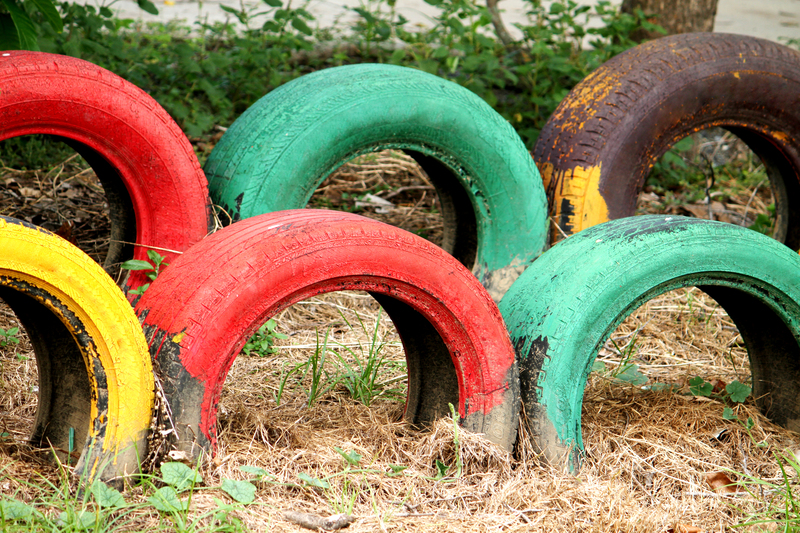Waste Management: Protecting Natural Resources
Posted on 25/09/2025
Waste Management: Protecting Natural Resources
Waste management is a pivotal aspect of modern society, focusing on the collection, transportation, and disposal of waste materials in a manner that has minimal impact on the environment. Effective waste management practices are crucial for conserving natural resources, reducing pollution, and ensuring sustainable development. This article delves into the significance of waste management and its role in protecting our precious natural resources.
The Importance of Waste Management
In today's rapidly growing world, the generation of waste is an inevitable byproduct of human activities. From household waste to industrial by-products, managing these materials efficiently is essential to protect the environment and public health. Improper waste disposal can lead to pollution of air, water, and soil, which in turn threatens wildlife, ecosystems, and human populations.

Types of Waste
Understanding the types of waste is fundamental to devising effective waste management strategies. Waste is generally categorized into several types:
- Municipal Solid Waste (MSW): This includes household waste, commercial waste, and waste from institutions. Commonly referred to as "trash" or "garbage," MSW consists of everyday items like packaging, food scraps, paper, and electronics.
- Industrial Waste: Generated by manufacturing and industrial processes, this type of waste includes materials like chemicals, metals, and by-products of production activities.
- Hazardous Waste: This category includes waste that poses significant risk to health and the environment due to its toxic, corrosive, flammable, or reactive properties. Examples include certain chemicals, batteries, and medical waste.
- Biodegradable Waste: This comprises organic waste that can decompose naturally, such as food waste, garden waste, and agricultural residues.
- Electronic Waste (E-waste): Discarded electronics such as computers, mobile phones, and appliances fall under this category. E-waste is particularly concerning due to its potential for environmental contamination from elements like lead and mercury.
Strategies for Effective Waste Management
Effective waste management incorporates various practices and technologies aimed at reducing waste generation, promoting recycling, and ensuring safe disposal. Key strategies include:
Source Reduction
Source reduction involves minimizing the amount of waste generated at the source. This can be achieved through practices like designing products with fewer materials, promoting reusable items, and encouraging more efficient use of resources.
Recycling
Recycling is a crucial component of waste management, enabling the recovery and repurposing of materials that would otherwise become waste. By converting used materials into new products, recycling conserves natural resources, reduces energy consumption, and mitigates pollution.
Composting
Composting involves the decomposition of organic waste, such as food scraps and yard waste, into a nutrient-rich soil amendment. This process not only reduces the volume of waste sent to landfills but also produces valuable compost that can enhance soil health and support sustainable agriculture.
Waste-to-Energy (WTE)
Waste-to-Energy technology involves converting non-recyclable waste materials into usable energy through processes like combustion, gasification, and anaerobic digestion. WTE facilities can generate electricity and heat, reducing the reliance on fossil fuels and decreasing landfill usage.
Landfilling
Though considered a last resort, landfilling remains a necessary component of waste management for materials that cannot be recycled or processed through other means. Modern landfills are engineered to minimize environmental impact, incorporating features like liners and leachate collection systems to prevent contamination of soil and water.
Benefits of Effective Waste Management
Implementing robust waste management practices yields numerous benefits for the environment, economy, and society:
Conservation of Natural Resources
By promoting recycling and composting, effective waste management reduces the need for extracting and processing raw materials. This conserves natural resources like timber, water, and minerals, ensuring their availability for future generations.
Pollution Reduction
Proper waste disposal prevents pollutants from entering the environment, thereby protecting air, water, and soil quality. This is especially important for hazardous waste, which can pose severe health risks and environmental damage if not managed correctly.
Energy Savings
Recycling and Waste-to-Energy technologies save significant amounts of energy compared to the extraction and processing of virgin materials. For example, recycling aluminum cans saves up to 95% of the energy required to make the same amount of aluminum from raw bauxite.
Economic Opportunities
The waste management industry generates employment opportunities across various sectors, from collection and transportation to recycling and energy production. Additionally, the sale of recycled materials and energy produced from waste can contribute to economic growth and sustainability.
Public Health Improvement
Effective waste management reduces the exposure of populations to harmful pollutants and pathogens, thereby enhancing public health. Clean environments are less likely to foster the spread of diseases and support healthier communities.
Challenges in Waste Management
Despite the benefits, waste management faces several challenges that need to be addressed:
Rising Waste Generation
As populations grow and consumption patterns change, the volume of waste generated continues to increase. Managing this growing waste stream requires innovative solutions and scalable infrastructure.
Recycling Contamination
Contaminated recycling streams can render recyclables non-viable for processing, leading to increased landfill usage. Public education on proper recycling practices is essential to improving the quality of recyclables.
Hazardous Waste Handling
The safe handling and disposal of hazardous waste is complex and costly, requiring specialized facilities and stringent regulations. Ensuring compliance and safeguarding public health is an ongoing challenge.
E-waste Management
With the rapid advancement of technology, the generation of electronic waste is a growing concern. Properly recycling e-waste to recover valuable materials and prevent environmental contamination is crucial but challenging.

The Role of Government and Policy
Government policies and regulations play a vital role in shaping waste management practices. Key measures include:
Legislation and Regulation
Enacting laws and regulations that mandate waste segregation, recycling, and safe disposal is fundamental to effective waste management. Compliance with these regulations ensures that waste is managed responsibly and sustainably.
Incentives and Awareness Campaigns
Government incentives, such as tax breaks and grants, can encourage businesses and individuals to adopt sustainable waste management practices. Awareness campaigns educate the public on the importance of waste reduction, recycling, and composting.
Collaborative Efforts
Collaborations between government agencies, private sector entities, and non-governmental organizations (NGOs) are essential for implementing comprehensive waste management strategies. These partnerships can foster innovation, share best practices, and enhance resource allocation.
Conclusion
In conclusion, waste management is a critical practice that safeguards natural resources, protects public health, and promotes sustainable development. By employing a combination of source reduction, recycling, composting, Waste-to-Energy, and responsible landfilling, we can mitigate the environmental impact of waste and ensure the conservation of our planet's resources for future generations. As we face the challenges ahead, the collective efforts of governments, industries, and individuals will be paramount in achieving a more sustainable and resilient world.
Latest Posts
Eco-Friendly Home Organization
Dispose with Care: Responsible Strategies for Removing Waste
Sustainable Solutions for Commercial Waste
Sustainable Solutions: A Closer Look at London's Waste Reduction Efforts

 020 3744 5712
020 3744 5712










